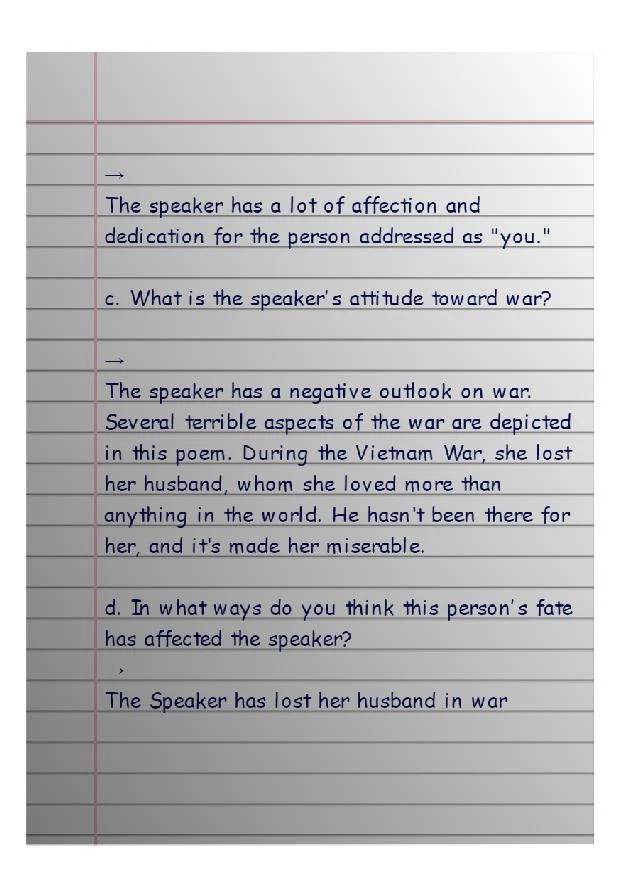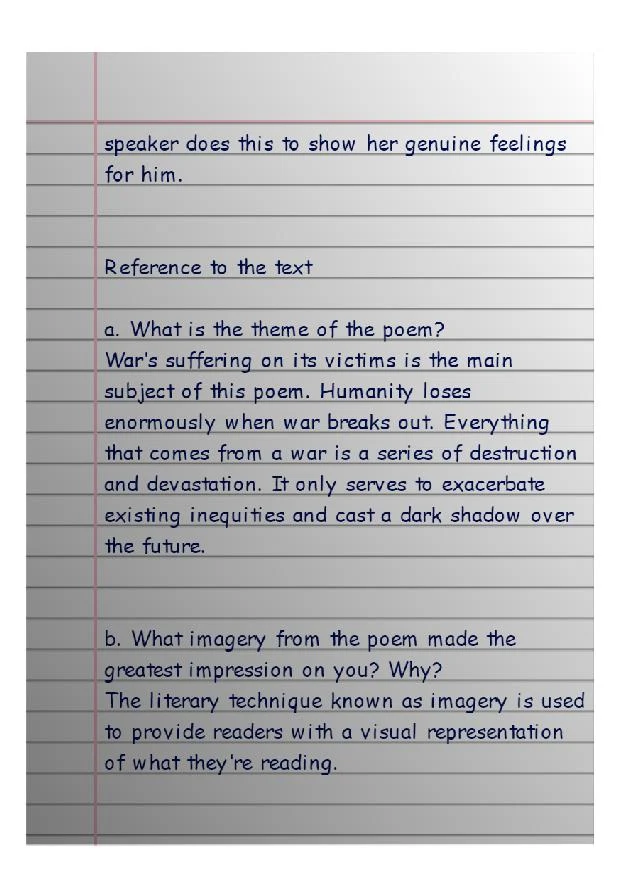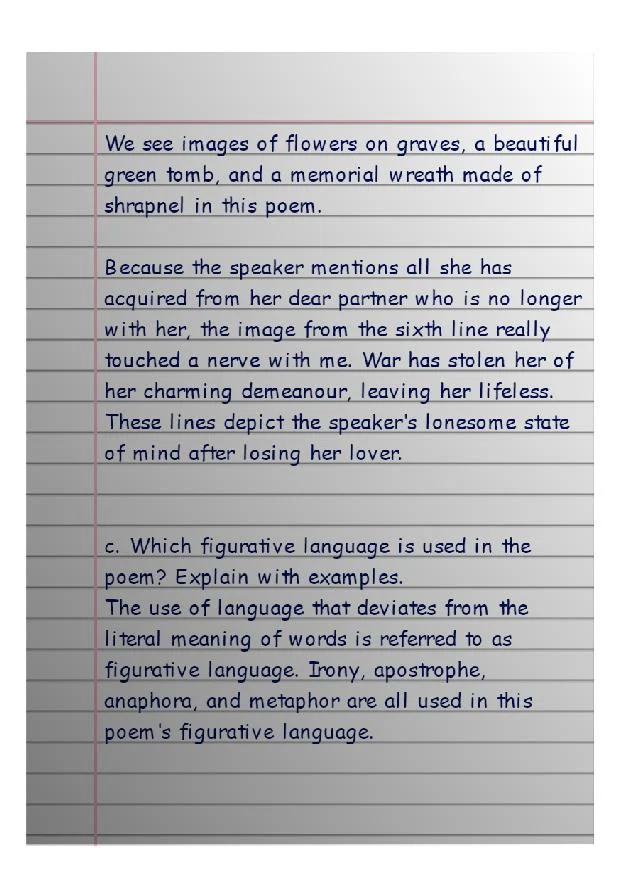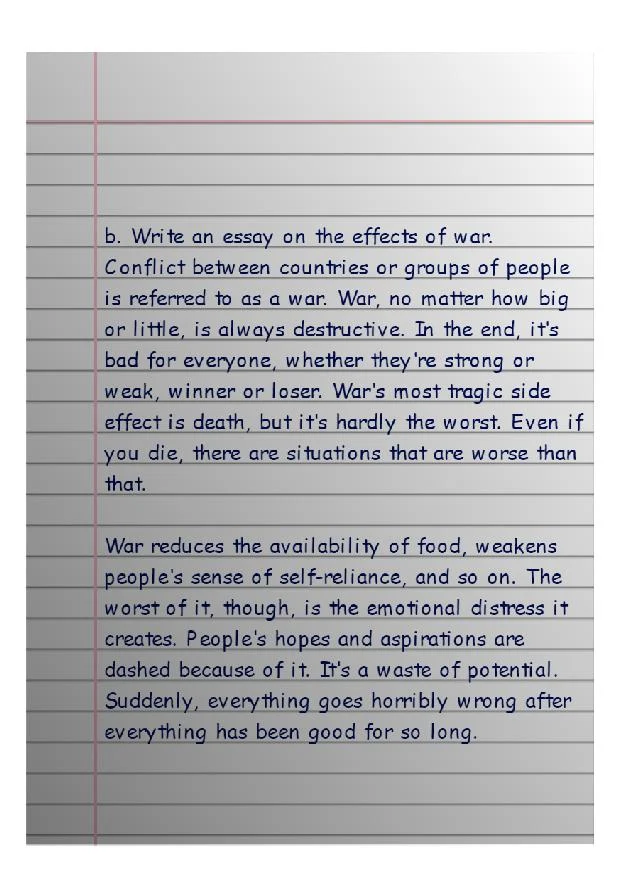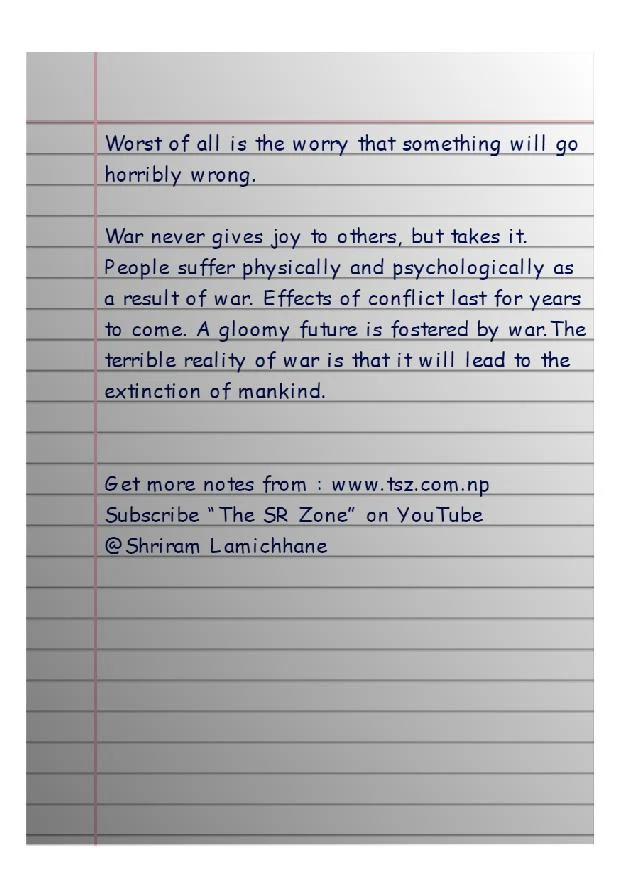The Gift in Wartime Exercise Class 11 English: Summary & Questions Answers
The Gift in Wartime is a poem told from the perspective of a young bride whose husband has died in the Vietnam War. It describes the "gifts" they exchanged - she gave him her youth, beauty, love and a springtime. In return, all she receives are his military medals and badges along with his lifeless body. This poem is in class 11 English poem unit 4 and it's exercise question answers solution and summary is in this article.
For complete notes of Class 11 English Book, go to this link - Class 11 English Guide & Notes.
The Gift in Wartime Exercise
The Gift in Wartime by Tran Mong Tu Summary
The Gift in Wartime is a memoir about Tran Mong Tu's time in Vietnam. War, according to the author, is a horrible event that leaves young brides widowed when it ends.
As she describes it, the pain of seeing own husband with unworn medals and silver stars that are still glistening on their immobile bodies is a very devastating moment for a young woman. Written as a theatrical conversation, the poem features an unknown "you," who in reality is her (dead) husband.
Initially, the poem discusses the list of presents she gave to her husband and of things he gave her in return. The bride placed a bouquet of flowers on his grave and draped her bridal garment over it. She has given him the best of all she has to offer: her youth, her beauty, her love, and a beautiful spring. In return, she gets his military awards, including his medal and rank insignia as well as an unmovable body.
Since he is no longer with her, his death or soul has also served as a gift to her. In the end, she hopes to reunite again in the afterlife. She'll save the shrapnel as a remembrance for when they meet again in the next world.


